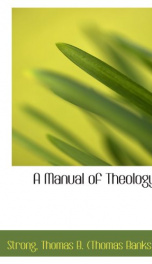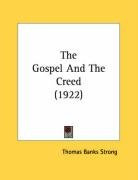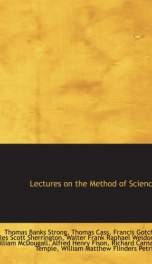a manual of theology

CHAPTER INatural Religion and the Incarnation. Two interests traceable in all religion ; (1) metaphysical; (2) moral or spiritual: occasionally pursued disproportionately, e.g. in Hellenism and Judaism. A. Both present in early religion as wo know it, illustrated by myth, prayer, ritual, sacrifice, B. The import of these two interests. I. The metaphysical assumes that the world is an ordered whole, from which chanco is excluded-tho moral- that God is to be found and known in nature. The metaphysical demand gives rise to the three metaphysical proofs of God, i.e. forms an ideal of thought, which is partly realbed in the world. It rests upon a claim to treat nature anthropomorphically, which is carried on-II. In the moral factor in religion. The world is governed not only by a law of uniformity, but also by a law of good. The proofs interpret the consensus gentiwm. C. The claim of Christ as set forth in the New Testament answers and satisfies the aspirations of man as seen in natural TTable of Contents CONTENTS; INTRODUCTION; The method of Theology Natural Theology deals with the existence of God, Christian Theology with the Incarnation Each starts by assuming the troth of its chief fact, and displays its coherence with other things This is due to the nature, of the facts in question, which (1) if true, underlie as absolute conditions the whole world of experience and faith respectively -, (2) aTe not capable of sensuous verification Hence the difficulties of Theology and its strained relations with scientific thought The unbiassed mind Scheme of the bookPages 1-11; CHAPTER IAbout the Publisher Forgotten Books is a publisher of historical writings, such as: Philosophy, Classics, Science, Religion, History, Folklore and Mythology.Forgotten Books' Classic Reprint Series utilizes the latest technology to regenerate facsimiles
Info about the book
Author:
Series:
Unknown
ISBN:
1500482145
Rating:
4/5 (6)Your rating:
0/5
Languge:
English
Users who have this book
Users who want this book
What readers are saying
What do you think? Write your own comment on this book!
write a commentif you like a manual of theology try:
Other books by this author
Do you want to exchange books? It’s EASY!
Get registered and find other users who want to give their favourite books to good hands!




